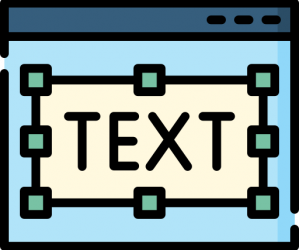
For this assignment, I decided to talk unscripted about my trip to France as part of a student exchange program 16 years ago. I used https://speechnotes.co/ and the results were quite fascinating!
How does the text deviate from conventions of written English?
In my opinion, the final result of text was quite jumbled and did not follow the usual conventions of written English. I am not sure if it was my accent (I moved from Mumbai, India to Vancouver, Canada, a few years ago ????) or if it was the program itself, but there were many words that were picked up incorrectly, for example “travels” became “drivers”; “Cannes” became “cars” and so on.
Perhaps the most glaring aspect of the text output was the complete absence of sentence structure. The sentences were run on and an endless stream of words that made no sense. Many sentences were incomplete—lack of punctuation only made it more difficult to understand. There was only a single period in the entire text of 716 words! Punctuation marks were missing—no periods, commas or colons. Some contractions were captured correctly though.
I usually pause a lot and use fillers such as “Umm” “Uh” while talking. These were not captured. Perhaps this was an intentional feature in the program to eliminate fillers.
Some words such as “clear blue skies” were mistakenly capitalized to “Clear Blue Skies”. There were a few spelling mistakes — “plonked” became “plonker”!
When it comes to mechanical correctness, the text left a lot to be desired for.
What is “wrong” in the text? What is “right”?
There were certain sentences that were picked up incorrectly to the point where it changed the entire meaning of the text. For example, the phrase “…asked us for our details” changed to “…I’m a narcissist for their details”! My overall sense is that while the text tried to capture the words per se, it lost out on other nuances that ultimately changed the meaning of a lot of things. When I read the text, I got a gist of what I was trying to convey; but at the same time, I cannot help but think that the essence of what I was trying to communicate was lost.
When we speak conversationally, our communication is different from when we write. When we write, we make a conscious effort to shape our thoughts into a logical pattern; we phrase our sentences and choose our words carefully. Depending upon the purpose of our writing, the tone and style varies. As the program simple captured my spoken words, thoughts that felt right in my head when narrating the incident felt a bit wrong when I read it on paper. It did not flow logically; the long sentences and absence of structure made it confusing and at time illogical to read.
What are the most common “mistakes” in the text and why do you consider them “mistakes”?
In my opinion, the mistakes can be broadly categorized into two types. The first type is straightforward and deals with grammar, syntax, punctuation, and missing capitalizations to name a few. In my opinion, I consider them to be “mistakes” because these go against the notions of a conventional English sentence structure. English is my second language and being a student, I remember learning the rules of correct sentence structure and conventions of written English. The text clearly does not follow these rules.
The second type of “mistake” is a bit more difficult to define. After reading the text, I felt that there was a certain disconnect between what I thought I narrated and what was actually captured in the voice-to-text translation tool. In my mind, I sounded more eloquent than the abstract and jumbled sentences recorded on paper!
What if you had “scripted” the story? What difference might that have made?
I certainly believe that I would have spoken more clearly and succinctly if I had scripted the story. Even while I was narrating my experience, I did think I was rambling off a bit—while the lack of a formal structure is okay in a normal conversation, it was not ideal when transferred to the written form. By pronouncing the words clearly, I am hoping there would have been fewer spelling mistakes. Scripting or writing the narrative would have enabled me to present my thoughts more coherently.
In what ways does oral storytelling differ from written storytelling?
In my opinion, there is a certain element of flexibility that is afforded in oral storytelling as opposed to written storytelling. For instance, in oral renditions of a story, the narrative changes a little bit with the narrator—each narrator brings in their own unique version and energy to the story. Sometimes the narrator may even change the story a bit depending upon the audience and the context. This contextuality, or flexibility is not present in written storytelling, which is set in print and are therefore consistent. The narrative does not change depending upon the reader, even though its interpretation might.
Oral storytelling relies heavily on memory, as these are often passed on from generation to generation. In written storytelling, one can always flip back the pages to recollect what one cannot remember. Also, one does not have to be literate to simply listen to a story; but one does need a certain level of literacy to read and comprehend written stories.
In oral storytelling, the narrator brings in their own energy, voice and emotions into the stories; in written stories it is up to the author to “show and not tell” through various word imageries. The author, through their words, gently leads a reader to create an imagery or to feel a certain way about the characters.


Manize,
There were definitely many similarities between us when it comes to the understanding of orality vs. the written. Although I can speak another language, English is my primary language – I found the influence of the accent an interesting factor in this particular assignment. I wonder: To what degree did you think your accent, if at all, played a role in the formation of meaning-making here?